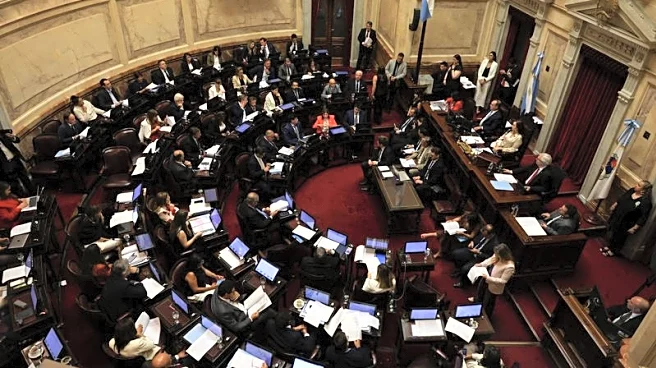What's Happening?
A new international study, co-led by IIASA researchers and Japanese partners, has proposed a transparent and inclusive research platform to democratize the development of global climate scenarios. This
initiative aims to broaden participation from scientists worldwide, particularly from developing regions, to ensure that climate policy analysis is globally representative and equitable. The proposal responds to concerns that current climate action scenarios, assessed by the Intergovernmental Panel on Climate Change (IPCC), are predominantly produced by institutions in Europe and North America, potentially overlooking perspectives from developing countries. The platform will allow researchers to submit ideas for model comparison studies, publish detailed experimental protocols, and participate in data submission and review processes. The initiative emphasizes reproducibility, data transparency, and broad access to model results, aiming to make climate research more inclusive and actionable.
Why It's Important?
The democratization of climate modeling is crucial for creating more inclusive and representative climate policies. By involving scientists from developing regions, the initiative seeks to address the imbalance in climate scenario development, which has historically been dominated by Western institutions. This approach could lead to more diverse perspectives in climate policy, potentially influencing global strategies to combat climate change. The open platform also aims to enhance the credibility and utility of climate projections, making them more applicable to real-world decisions. As climate change is a global issue, the research informing policies must reflect a wide range of views and priorities, ensuring that solutions are equitable and effective across different regions.
What's Next?
The initiative is designed to evolve gradually, with international collaboration strengthening over time. Researchers worldwide will be encouraged to participate in the platform, contributing their expertise to shape future climate policies. The proposal complements ongoing efforts by IIASA and partners to enhance openness and transparency in climate scenario development. As the platform gains traction, it is expected to inform future IPCC assessments and help shape climate policies that determine the planet's trajectory in the face of climate change. The transition plan aims to build capacity in developing regions, provide technical infrastructure for data sharing, and ensure sustainable funding to enable global participation.
Beyond the Headlines
The initiative highlights the ethical dimension of climate research, emphasizing the need for inclusivity and representation in scientific studies that inform global policies. By democratizing the process, the platform seeks to empower scientists from underrepresented regions, fostering a more equitable distribution of knowledge and resources. This shift could lead to long-term changes in how climate research is conducted, promoting collaboration and shared standards across the scientific community.










